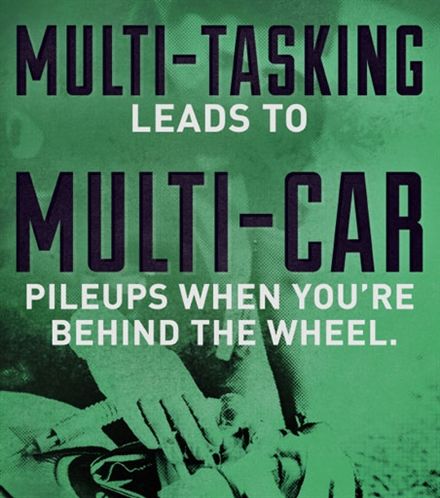

Clinic Byte: Distracted Driving
Source/Author: Marie Confident, RN, BSN
April 16, 2015
April is Distracted Driving Awareness Month. This really hits home for me, personally, as my older daughter will soon be driving. As I was doing research on driver’s ed courses and watching related videos for teens, I realized that as parents, we have to set good examples for our children. They may look like they are bored or not paying attention, but they do take mental notes and are quick to remind you of your promises even though they may rarely keep theirs.
According to the National Safety Council, 1 in 4 car crashes involves cell phones. The physical, emotional, financial and legal burdens that a few seconds on your cell phone may cause are not worth it. Wearing seat belts, driving at the speed limit, following driving laws, not texting or talking on your cell while driving and not driving impaired are all ways that parents set good examples for their children.
Having a written, signed agreement with your teen about your rules and expectations concerning driving privileges (to include the behaviors you model plus situations specific to teens, such as no loud music, no driving with friends until after 6 months or a year of driving experience, no driving after 11 pm etc.) will help decrease the risks of distracted driving and its potential harm. Visit http://driveithome.org/ for additional resources for parents and teens.
Having a written, signed agreement with your teen about your rules and expectations concerning driving privileges (to include the behaviors you model plus situations specific to teens, such as no loud music, no driving with friends until after 6 months or a year of driving experience, no driving after 11 pm etc.) will help decrease the risks of distracted driving and its potential harm. Visit http://driveithome.org/ for additional resources for parents and teens.
Until next time, let’s keep our eyes on the road and hands on the wheel - and be safe!
Marie Confident, RN, BSN
Shorecrest School Nurse
























